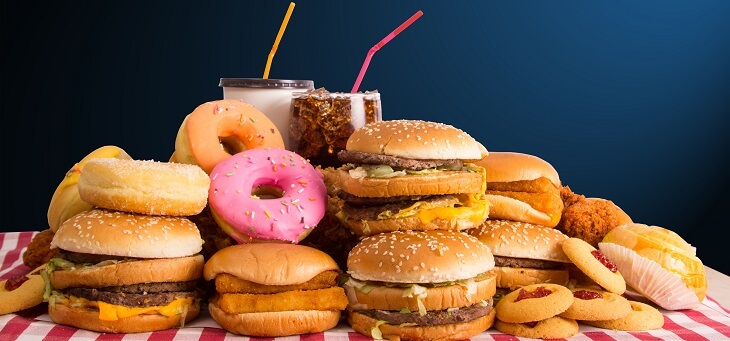Consuming high rates of ‘ultra-processed’ foods can more than double your risk of colorectal cancer – but only for one group.
Ready-made, pre-cooked meals containing highly processed foods are an increasingly common part of modern life.
The convenience of these foods can make it easy to ignore the product’s nutritional information, which may not be great. But for one group, these highly processed foods can more than double their risk of cancer, new research shows.
In a paper published in medical journal The BMJ, researchers found that men who consumed high rates of ultra-processed foods were 29 per cent more likely to develop colorectal cancer.
Crucially, the researchers did not see the same association in women.
Read: Resistant starch may help prevent cancer
The study looked at the survey results of more than 200,000 participants – 159,907 women and 46,341 men – compiled over 25 years.
Every four years of the study, each participant completed a food frequency questionnaire that asked how frequently they consumed around 130 different foods.
“We started out thinking that colorectal cancer could be the cancer most impacted by diet compared to other cancer types,” says Dr Lu Wang, lead author of the study.
“Processed meats, most of which fall into the category of ultra-processed foods, are a strong risk factor for colorectal cancer. Ultra-processed foods are also high in added sugars and low in fibre, which contribute to weight gain and obesity, and obesity is an established risk factor for colorectal cancer.”
Read: Simple saliva test for cancer and heart disease risk on trial
Colorectal cancer, more commonly known as bowel cancer, is the third most commonly diagnosed cancer in Australia. It is most common in people over 50, but it is possible to develop the condition at any age.
The research group found the strongest link between ultra-processed foods and colorectal cancer came from red meat, poultry or fish-based products.
The team found the strongest association between colorectal cancer and ultra-processed foods among men came from the meat, poultry, or fish-based, ready-to-eat products.
“These products include some processed meats like sausages, bacon, ham, and fish cakes,” Dr Wang says.
Read: Is your non-stick frypan a cancer risk?
They also found increased consumption of products that are high in sugar, such as soft drinks, fruit juice and flavoured milk, pushes the risk of cancer higher again in men.
Not all ultra-processed foods were found to increase bowel cancer risk. Dairy foods such as yoghurt are highly processed but have no impact on cancer risk in men – and can even act as a countermeasure against cancer in women.
“We found an inverse association between ultra-processed dairy foods like yoghurt and colorectal cancer risk among women,” says Dr Fang Fang Zhang, study co-author.
“Foods like yoghurt can potentially counteract the harmful impacts of other types of ultra-processed foods in women.”
Assistant Professor Mingyang Song, another co-author, noted it was still unclear how ultra-processed foods affected the genders differently. “Further research will need to determine whether there is a true sex difference in the associations, or if null findings in women in this study were merely due to chance or some other uncontrolled confounding factors in women that mitigated the association,” he says.
Do you eat many processed foods? Are you worried about the cancer risk? Let us know in the comments section below.

